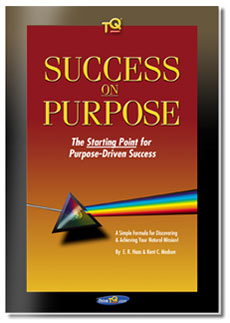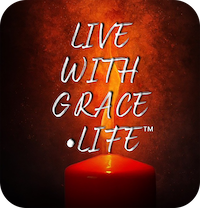Authenticity means erasing the gap between what you firmly believe inside and what you reveal to the outside world. ~ Adam Grant
Being you, in an authentic manner, can be difficult when your world has been overturned. When we are first in grief, our brains are overloaded, we stumble around in what has been described as “grief fog.” It is my prayer that, as you begin to develop the discipline of gratitude, being thankful for all your loved one has been to you and moving on to expressing thankfulness for good things that are happening in your life now, you’ve begun to be resilient, overcoming adversity. This is a process that takes a bit of time. Maybe you’ve thought about the roles you had in your loved one’s life, roles that are no longer relevant. You’ve thought about who you are now, the priorities you now have, and the roles you now have. There is one more step.
To consider who you will be in the future, and what roles you will fill in the future is the crux of authenticity. You must clearly define what values are important to you, the values you desire to inculcate into the very fabric of your being. So, how do you even begin?
This is what I did: First, I considered what things did I do that energized me, that made me feel as if I had a purpose, that didn’t drain me mentally or physically. I love teaching and mentoring, especially when this teaching and mentoring is related to the Bible. I find I’m invigorated when I encourage people, sharing my stories of overcoming and even thriving after adversity. I’ve always been a curious person. I’m the perpetual two-year-old, always asking, “Why?” Research and learning are a way of life for me. My learning does not stop with facts. I’m compelled to figure out how this new knowledge can be applied to my life and the life of others. If I were to list my guiding values, they would look something like this: God; Curiosity; Investigation/Research; Relationships; Teaching/Mentoring. That is the general order of priority in my life.
As opportunities come up to be involved in a project, I go through this list of values. If it doesn’t fit into any of those five categories, the chances are very slim that I’ll participate. But if the opportunity fits in with those five categories, my question is, “Do I have the time and the resources?” If an opportunity fits in with two or three of the categories, I think long and hard. Sometimes the answer is yes, sometimes the answer is no.
It is in defining my values and structuring most of my daily activities around those values that I live a life of authenticity and purpose. Of course, I still must make the bed, tidy the house, and do the dishes and laundry. But most of my life revolves around these five core values.
 How would you go about developing a list of a handful of the values that define you or you want to define you? For me, this was where Google came in very useful. You can google various lists: “personal values list” will give you about two million links instantaneously.
How would you go about developing a list of a handful of the values that define you or you want to define you? For me, this was where Google came in very useful. You can google various lists: “personal values list” will give you about two million links instantaneously.
Or better, order Success On Purpose which has entire exercises to help you decide what you value most in life.
The reality of it is that you are spending the only life you have to live… you need to make sure you are investing your time and talent in those things that have maximum value to you.
The TWO Great Tragedies In Life…
It has been said that the two great tragedies in life are these: Not knowing your purpose—not knowing why you are here on Earth… and once you know your purpose—not LIVING it with passion and dedication… every single day you are alive.
Pastor Rick Warren, in his thought-provoking book, The Purpose-Driven Life, posed the question of the ages…
“What on Earth Am I Here For?”
However, once you know the answer to this question—once you understand the Divine reason for your existence—there’s an even bigger question to be answered…
“How in the world am I going to make this happen?!”
Just HOW can I live a life of passion and purpose? What, exactly, am I expected to do? How can I transform my life’s purpose into an unstoppable mission… and ultimately achieve the success I desire, personally and professionally?
Now the challenge: are you willing to take a bit of time and think about what values define you, what values you want to define you? This is a huge step in going forward in personal authenticity, the place where your values and actions line up.
In the end, Authenticity is the critical Archstone in your bridge of Grace. You must find a way to become the person you are meant to be. Especially when you are moving from loss to the new you you must become.
God Bless,
Cindy

0 Comments